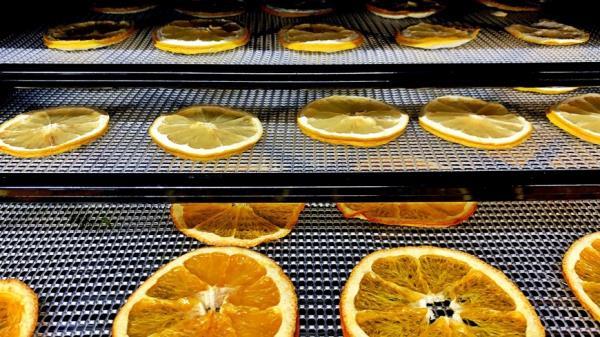Ionic wind technology becomes a new drying process for fruit & vegetables
Empa, an interdisciplinary research institute for materials science and technology development of the ETH Domain (a closely cooperating network which places Swiss research in a good position at international level), developed a new drying process for fruit and vegetables.
It is well known that if fruit or vegetables are dried whis heat, nutrients can be destroyed and flavors can be reduced. This is why the industry prefers non-thermal drying of food, that is, without heating. Among other things, fans are used for this. Empa proposes an ionic wind drying process that promises to make the non-thermal drying of food much more energy efficient, faster and even gentler.
The food industry has been using fans for a long time, preferring to dry fruit and vegetables without heat. However, the so-called non-thermal convective drying of food with large fans has a disadvantage: the drying process is time-consuming and energy-intensive. Empa researchers have developed an alternative, a so-called ionic wind technology that is suitable for industrial applications.
Previously, other researchers tried to use ionic wind with various approaches for industrial food drying, but scaling up was not possible. Empa researcher Thijs Defrey from the "Biomimetic Membranes and Textiles" Laboratory with his team pursued this idea and varied various process parameters. Importantly, the researchers did not place the food to be dried on a tray, as it was done previously, but instead they used a mesh. This sounds like a small change, but it makes a huge difference: now the water can evaporate from all sides of fruit or vegetables. As a result, the ionic wind dries food twice as fast as on the impermeable tray that has been used by researchers around the world so far. However, the important thing is that the ionic wind dries fruit and vegetables more uniformly on the mesh.
To further refinement their new concept, Empa researchers relied on complex computer simulations, which allows various dryer settings and their influence on the drying process to be simulated virtually. Consequently, the system can be optimized without the need to physically build new drying equipment each time.
Empa is the interdisciplinary research institute for materials science and technology development of the ETH Domain. Its mission is to develop materials and technologies for a sustainable future. Empa turns research results into marketable innovations through an efficient technology transfer.
More about the new concept can be found on the institute's website.





